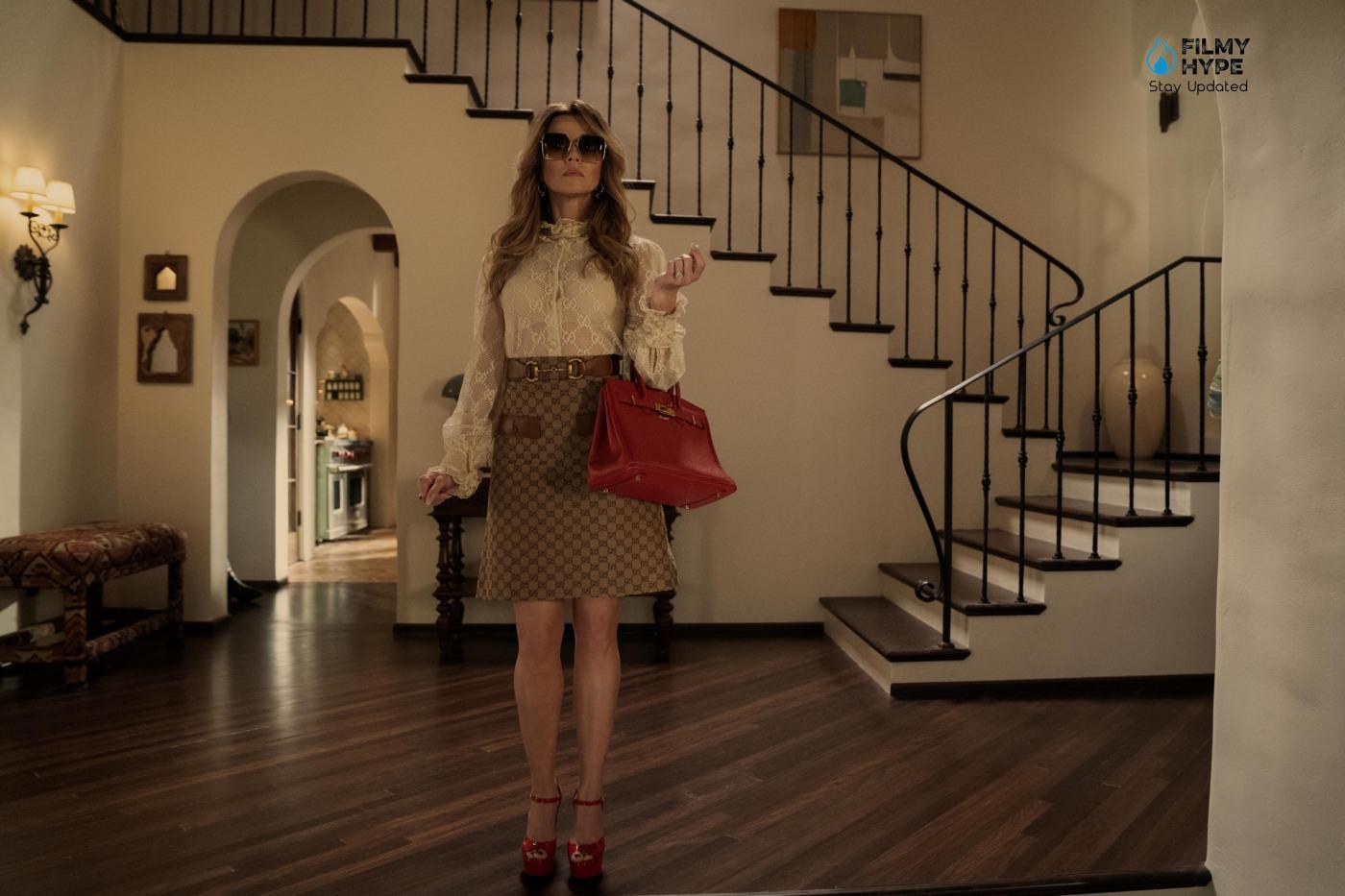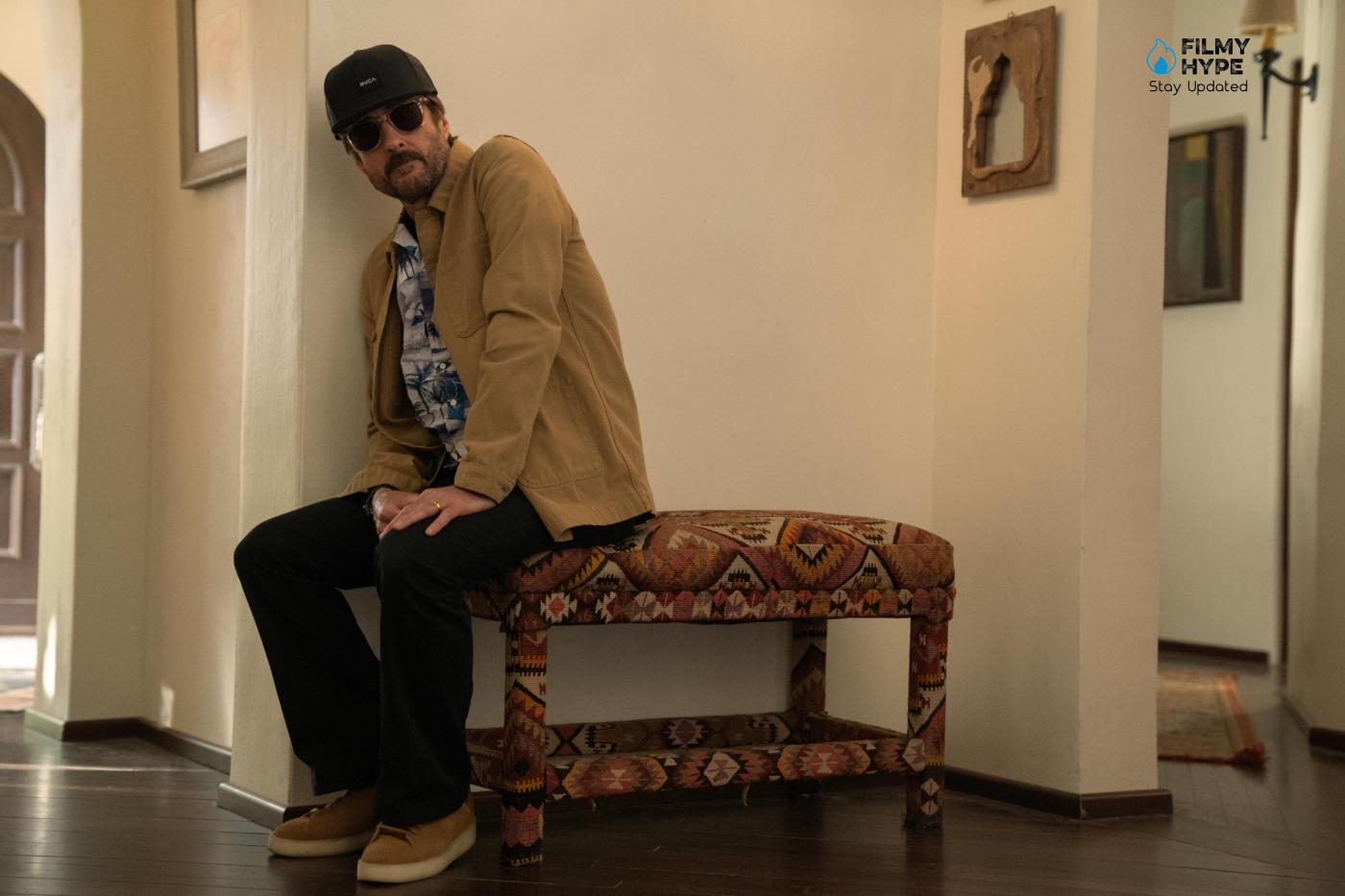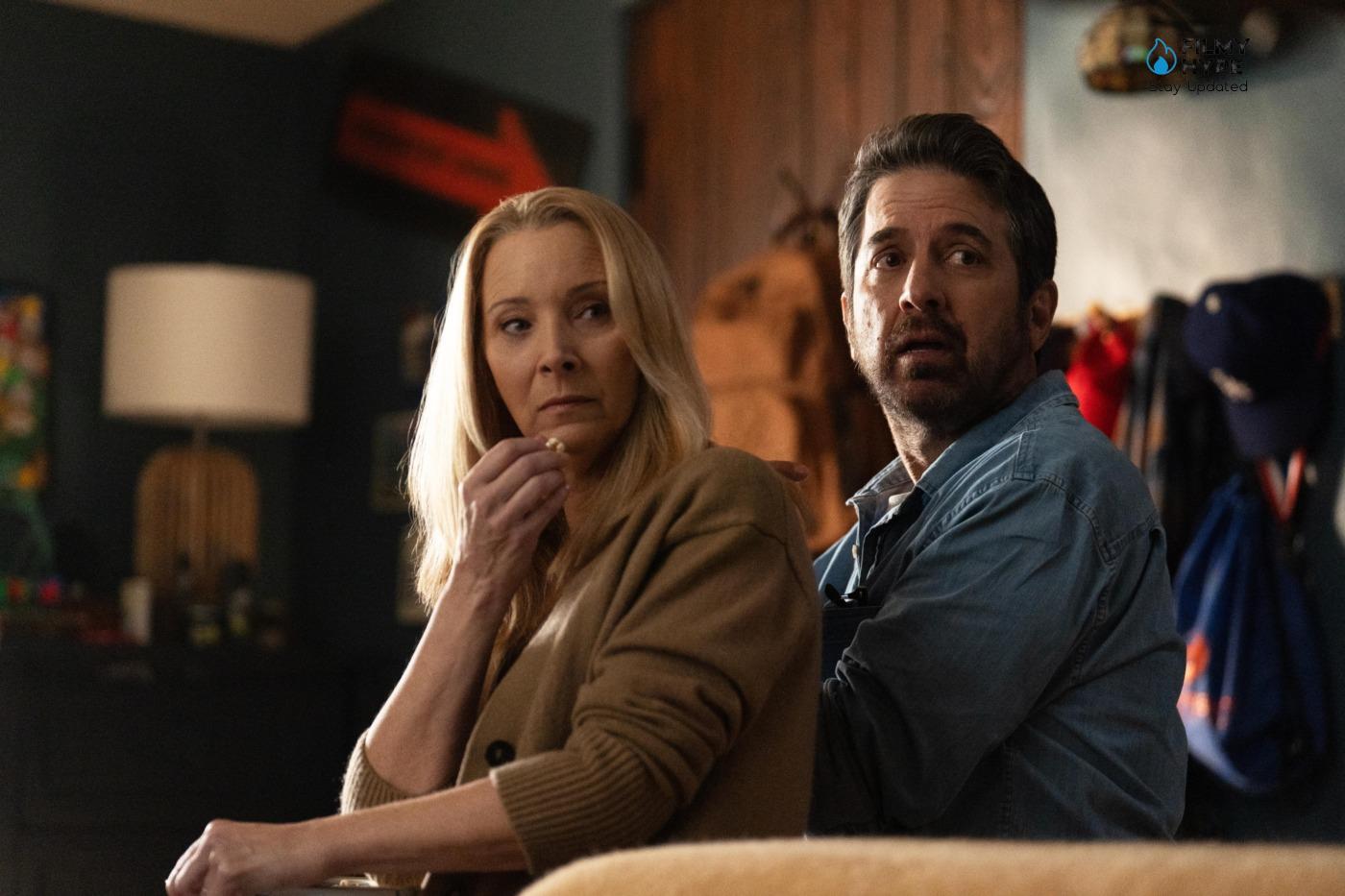No Good Deed Review: A Captivating Story Between Crime, Drama and Comedy!
No Good Deed Review: Available on Netflix from December 12th, No Good Deed is the new dark comedy created by Liz Feldman, the author of successes such as Dead to Me. The series, consisting of eight episodes of half an hour each, tells the ruthless competition of three families to win a splendid Spanish-style villa in Los Angeles; but the real estate dream soon turns into a nightmare, bringing to the surface secrets and tensions never dormant. Protagonists of this intriguing mix of mystery and humor are Lisa Kudrow (Friends) and Ray Romano (Everybody Loves Raymond), flanked by a stellar cast that includes Linda Cardellini, Teyonah Parris, and Luke Wilson. With a narrative that moves between social satire and emotional drama, No Good Deed explores how far we will go to protect what we love. In stark contrast to the already rampant Christmas spirit, Netflix offers its subscribers No Good Deed, a black comedy in 8 episodes in which it is really difficult to glimpse love and good feelings.

At the center of the story are Lydia (Lisa Kudrow, unforgettable Phoebe of Friends) and Paul (Ray Romano), a couple who decides to put the luxury family villa on sale, in perfect Spanish colonial style ’20 years. Predictably, an auction breaks out between several families more or less known by the couple. What potential buyers don’t know is that the villa hides secret leftovers from Lydia and Paul’s past, but at the same time, even the new potential inhabitants of the house have their dark sides to hide. As the adage says, «The cleanest one has managed». No Good Deed is populated by ambiguous or even despicable characters, involved in a dense mesh of secrets and betrayals closely interconnected with each other. The series created by Liz Feldman (Dead to Me) focuses the headlights above all on the couple, put into crisis by different perspectives, with various dynamics. From mourning so lacerating as to make a relationship explode to the most classic sexual affair, passing through the different approaches to the always burning theme of children and family intrigues: everything seems to undermine emotional and sentimental stability at the root, in a desperate and disheartening human framework.
No Good Deed Review: The Story Plot
Lydia (Lisa Kudrow) and Paul (Ray Romano), in an attempt to leave their past behind, decide to sell their elegant Spanish colonial-style villa, built in the years ’20 and located in one of the most exclusive neighborhoods in Los Angeles. The news triggers a frenetic race to buy, attracting numerous families to be convinced that that house can be the solution to their problems. However, what appears to be a perfect opportunity is far from idyllic: Lydia and Paul keep dark secrets related to the home, which risk transforming it from a “dream house” into a real nightmare. As the two spouses try to hide the truth, they discover that facing the past is the only way to move forward, forcing them to confront their deepest fears.
No Good Deed Review and Analysis
What is most striking about this series is its original, fresh direction, always careful to capture the viewer’s mind and heart by dragging it into a truly intriguing story that always knows how to prove to be the opposite of what is believed to have understood. Beautiful is the work done on the characters, each of whom is so complex and fascinating in its contradictions and imperfections that it becomes such a concrete representation of the human being that it seems real. Each episode, between flashbacks and twists, gives the viewer a small card of a larger puzzle that is revealed in its total image at the end and drags into a story so articulated in its simplicity, deep in its lightness, and different from what we are used to seeing on the small screen to become irresistible. No Good Deed is a series that is not afraid of being different from the others, of being original, of having a well-defined character, and also leaving the tracks to give the public a show that glues to the screen with its suspense, his comedy, and his profound moments of reflection on the complexity of human bonds that make the whole story much more than it may seem at first glance.

This is one of those series that manages to talk about very delicate themes such as mourning, guilt, death, and the family with a lightness that becomes of great impact and is never superficial. Congratulations to the screenwriters of this series, to the actors, to its creator, and the director because we finally have a really well-thought-out and realized series in front of us that is ready to amaze everyone. No Good Deed stands out for its ability to naturally mix a variety of genres, creating a narrative balance that surprises and intrigues. The series starts from a premise that may seem like a sort of psychological thriller but manages to subvert expectations thanks to an accurate blend of black comedy, moments over the top, moments of light tension, and emotional reflections. This thematic versatility is a testament to Liz Feldman’s ability to handle narrative tones with skill. The black comedy emerges in the brilliant dialogues, where irony does not intend to snatch a smile but intends to be a tool to reveal deeper truths about the characters and their motivations, succeeding however only at times.
At the same time, the light influences from thrillers introduced into the story, present in the main plot of the story, keep the viewer’s attention alive through well-balanced twists and a constant tension that never leads to the foreseeable. In addition to working with the thriller, Feldman manages to transform even the most dramatic moments into opportunities to explore human resilience and the complexity of relationships. Universal themes such as family, identity, and desire to belong are treated with surprising delicacy, making the series a layered story that speaks to a large and diverse audience, within a production that invites us to reflect on what it means to find a place that we can call “home” and how the past, however difficult to deal with, can never be completely left behind.
So, this series (or perhaps miniseries) turns out to be, in its main corpus, a somewhat engaging black comedy, capable, more than anything else, of entertaining the viewer thanks to a narration that generates suspense and curiosity, rather than for its thematic depth, while focusing on issues such as the sense of feeling at home. This entertainment effect is obtained through a series of well-thought-out narrative weaves, which revolve around the spouses Lydia and Paul Morgan and their home: a house that becomes the beating heart of the entire serial product. During all eight episodes, the plot keeps the public’s attention high thanks to two main narrative lines. The first focuses on the sale of the Morgan villa; the second, more obscure, concerns the mysterious death of the couple’s son, which took place inside the house at the hands of a firearm, with the feeling that something dark is hidden behind this dead inside the family environment. Through these two dramaturgical directions, the series pushes the viewer to question himself: what do the Morgans hide about the death of their son? Who will become the new owner of this luxury cottage in Los Angeles, which the Morgans try to sell to leave the past behind?

To answer these questions, the showrunner builds a dense and complex narrative, which moves on the typical tones of the dark comedy. This style not only permeates the main story, focused on the Morgan couple, but also extends to the secondary characters, creating the intention of a choral series, where each character has a fundamental role within the story. However, this objective is not fully achieved, as the prospective buyers are often described in an excessively two-dimensional way. If the part dedicated to Morgan has a more intimate nuance, with moments over the top and somewhat absurd situations, the narration focused on aspiring buyers sacrifices a dramatic component to favor exaggerated tones.
This approach makes secondary characters nice, but uninteresting. These parallel stories, although told superficially despite the discreet performances of the cast, represent an important element of the television series. However, the focus is more on the vicissitudes of Morgan, through a dramaturgical approach that favors black comedy. Without giving up on more intimate and dramatic moments, the series avoids slipping into excessively gloomy or depressive atmospheres, preferring to maintain a lighter tone, typical of soap operas. In this context, even the most tragic events are narrated with a hint of irony, as evidenced by the subplot involving Paul and his drug addict brother, who has just been released from prison, whose return puts Paul and Lydia in a situation that is anything but simple, although told superficially despite the discreet performances of the cast, they represent an important element of the television series.
Despite the apparent lightness, which mixes thrillers, comedy, and family drama, the thematic focus of the series remains the mourning and loss of a child, the firstborn, and the difficulty of overcoming this trauma. This drama is explored through the eyes of a mother and father who, from the day of the tragedy, get lost in an endless tunnel, blaming each other and, at the same time, feeling deeply guilty for what happened, in a series that will tell to the public the truth about that dark evening only in the penultimate episode, in a functional way, to keep the suspense in the story high, encouraging the viewer to view all the episodes to understand what happened that night. Mourning is analyzed through the eyes and psychology of Lydia, a deeply distressed mother and woman, who self-accusations and punishes herself for what happened. Once a successful pianist, she can no longer play or leave her home, which for her has become the very essence of her existence: a place that holds her memories and ghosts. Although the economic difficulties force her to put the house up for sale, Lydia would not want to part with it, precisely because that is where her past lives. In addition to this figure, mourning is also shown through Paul’s emotions who, on the contrary, adopt a diametrically opposite strategy: he avoids talking about his son or even just thinking about him.

This attitude consumes him internally and leads him to move away from Lydia, not so physically or emotionally. The two spouses, while sharing the same house, are now two strangers. The series, therefore, follows their tormented path, between unresolved conflicts and pains, never elaborated, to show the attempt of Lydia and Paul to face their demons and rebuild their lives from the ashes of a family tragedy. In addition to Morgan, the series presents us with several secondary characters, as mentioned above. Among these, we find the lesbian couple composed of the lawyer Leslie Fisher and the midwife Sarah Weber, with the latter eager to have a baby. At the same time, the narrative also focuses on the African American couple formed by the writer Dennis Sampson, his mother, and partner, Carla Owens, waiting for their first child. This part of the story deals with issues such as lies and the fear of death, treating them in an essentially ironic tone. Finally, we meet the Morgan neighbors: the declining soap opera actor JD Campbell and his wife Margo Starling, a character who is a very different figure from Lydia.
The series is undoubtedly enjoyable from a visual and directorial point of view, with some interesting finds, such as the “artificial trolley” which allows you to move the camera inside the pipes of the house. However, on a photographic level, no particularly innovative solutions emerge lighting, although simple, is functional to storytelling and effectively accompanies the development of events. Also, from the directorial and script point of view, the product succeeds in its intent to entertain. However, it leaves little to the viewer on an emotional or intellectual level, risking being quickly forgotten. This is due to a writing that, in some moments, proves superficial, with little in-depth characterization of the characters and competent but rather monochordic interpretations. In particular, actors like Lisa Kudrow, Denis Leary, Ray Romano is Luke Wilson could have offered decidedly more incisive performances.
No Good Deed is an intriguing series that cleverly plays with genres, moving from black comedy to psychological thriller, but without ever losing sight of the emotional side of family tragedy. While keeping the suspense and interest of the viewer high with a compelling plot, the characterization of the secondary characters and the superficiality of some subplots reduce the overall depth. Although there are moments of intense introspection, the series cannot leave a lasting impact, remaining more in the realm of entertainment than in deep reflection. The eight episodes of No Good Deed build an intricate tapestry of mysteries and twists, keeping the viewer constantly on the thorns. The centerpiece of the drama is the death of the Morgan son, a tragic event wrapped in a curtain of uncertainties: what seems a simple attempt at domestic theft proves, episode after episode, a more complex and darker knot of secrets. Thus, each episode reveals a new fragment of truth, balancing moments of revelation with further questions, a narrative mechanism that keeps attention high without ever falling into predictability.

The interactions between the characters, their ambiguous behaviors, and the small clues scattered along the narration create a claustrophobic atmosphere, in which every detail seems to have a specific weight. But Liz Feldman cleverly weaves the central mystery even with suspense-rich subplots, prompting the viewer to question the motivations and faults of each character. This balance between tension and psychological drama is one of the show’s strengths. It is not just a matter of finding out who or what lies behind the tragedy, but of observing how each character faces his shadows, adding depth and pathos to the narration. No Good Deed offers a sharp and merciless portrait of the Los Angeles company, revealing contradictions and shadows: behind the image of an open and tolerant city hides a microcosm marked by unbridled ambition, narcissism, and opportunism. The search for the “perfect home” thus turns into a powerful metaphor for exploring the materialism and ferocity that characterize many human interactions in Los Angeles described by Liz Feldman.
Each character embodies a different aspect of this reality: delusions of protagonism, whims, and the unceasing race toward success make the social landscape vivid and complex. The plot balances irony and drama to highlight how the urban context influences the choices and values of its inhabitants. With incisive dialogues and situations full of tension, the series invites us to reflect on the moral compromises that often accompany ambition. The beating heart of No Good Deed certainly lies in its extraordinary cast, which gives life to rich and multifaceted characters, giving depth and realism to each subplot. At the center, we find Paul Morgan, a man crushed by debt, and Lydia Morgan, who fights with the weight of painful and secret memories of the past. Equally complex figures gravitate around them: Margo Starling (Linda Cardellini), the embodiment of calculating ambition, and Carla (Teyonah Parris) with her partner Dennis (O-T Fagbenle), who face the difficulties of having to compromise between dreams and reality.

To complete the narrative mosaic there is Luke Wilson, in the role of a declining actor, and the duo Abbi Jacobson and Poppy Liu, interpreters of an unpredictable and engaging couple. The synergy between these interpreters represents the real strength of the series. Romano and Kudrow masterfully alternate comic moments with dramatic nuances, exploring the contradictions of their characters with emotional intensity. Linda Cardellini offers an incisive and cutting performance, while Parris and Fagbenle create multifaceted interpretations, capable of reflecting the pressures and insecurities of the contemporary world. However, one of the main critical points of No Good Deed is his tendency to disperse the narrative focus. Although Paul and Lydia Morgan are set up as the central protagonists, the series often moves to secondary characters, sometimes in a hasty way, leaving some partially developed subplots. This approach can be dispersive, reducing the emotional impact of some revelations and penalizing the deepening of crucial relationships. However, this fragmentation also represents one of the factors that enrich the story: the variety of perspectives allows the series to explore a wide range of human and family dynamics, transforming each character into a piece of the thematic mosaic. The chorus of the narrative offers interesting ideas, but the risk of overloading the plot is evident.
No Good Deed Review: The Last Words
No Good Deed stands out for its mix of mystery and social satire while exploring the ambitions and secrets of complex characters, all connected by a house that symbolizes the dream (or nightmare) of a better life. Despite some narrative smudges, the chorality of the cast and the variety of registers make the show compelling and original. The milestones of television comedy are far away, but No Good Deed however, it manages to center a compact story, in focus and more than dignified, a result far from obvious in these times. For once, there is no false and illusory consolation on the contrary, but on the contrary, the feeling of having touched the most putrid aspects of the human soul made more bearable only by characters constantly over the top, victims and at the same time executioners of a putrescent society.
Cast: Ray Romano, Lisa Kudrow, Linda Cardellini, Luke Wilson, Teyonah Parris, Abbi Jacobson, Poppy Liu, Denis Leary
Created By: Liz Feldman
Streaming Platform: Netflix
Filmyhype.com Ratings: 3.5/5 (three and a half stars)






